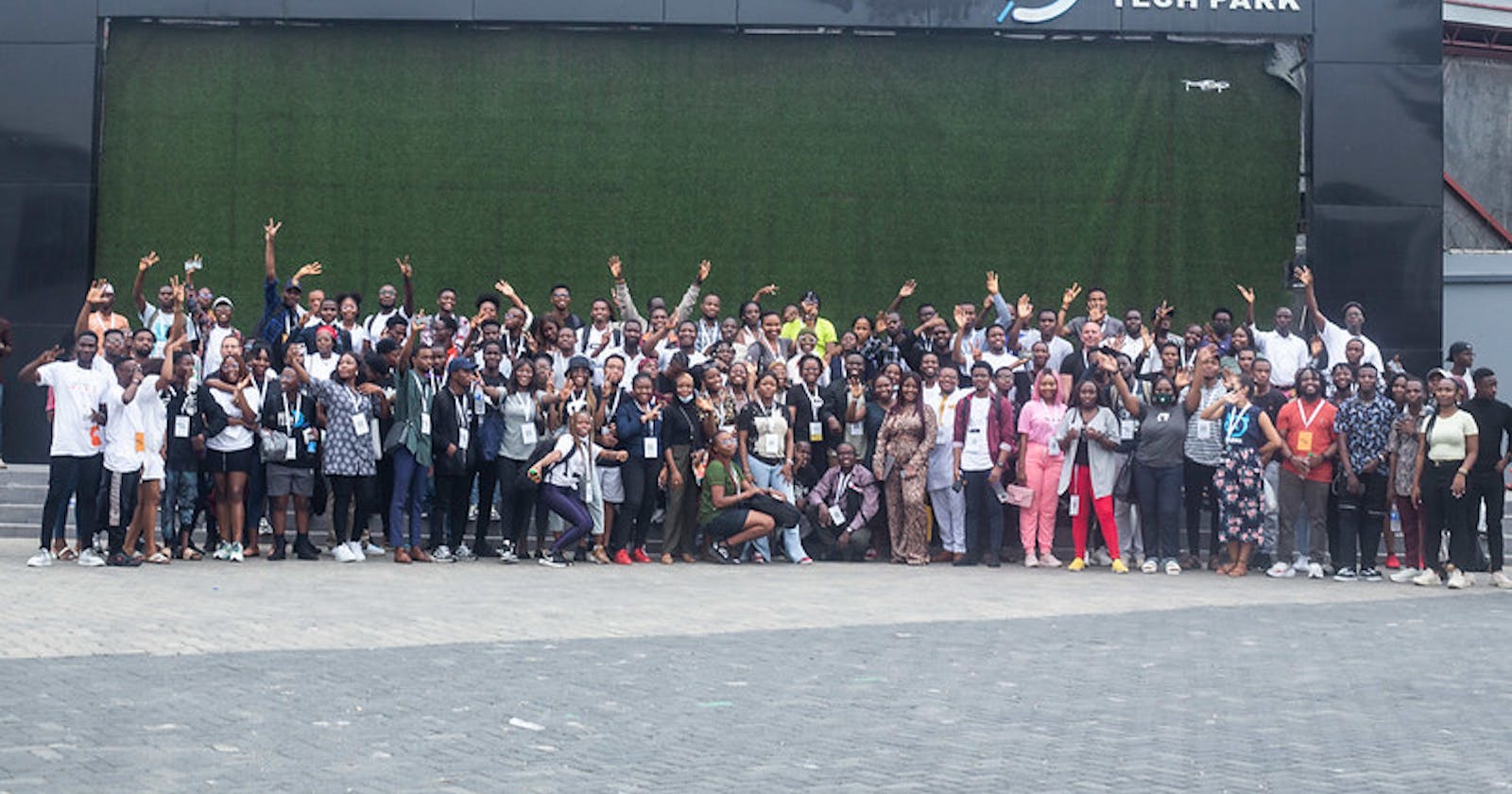Table of contents
- Highlights of some Sessions
- Primer on Blockchain and RSK by Gino Osahon
- Open Source Paths In Learning Mixed Reality Development By Tayo Madein
- Sourcegraph: A Must-Have Developer Tool For Open Source By Michael Bali
- Docs save lives: How To Create Useful Documentation For Your Users Using Digital Psychology Principles By Linda Ikechukwu
- Documentation as a Service: How We're Changing The Game At Xata By Tejas Kumar
- Leveraging Tech: Building On Existing Skills To Achieve A Career In Tech By Udokaku Ugochukwu
- Breaking Into Product Management With Open Source By Shebuel Inyang
- How To Indulge Your Need For Technical Writing As A Developer By Idris Olubisi
- My OSCA Story By Dominion Ero
- Opening Doors With Open Source By Anjana Vakil
- The Future Of Cloud-Native By Chris Aniszczyk
- The Golden Ticket: Becoming A Superstar & Impactful Open Source Software Contributor By Prosper Otemuyiwa
- Sustain Africa
- Conclusion
Time is a precious commodity. Choosing to spend time on something is choosing to spend something that you can never get back, making it even more valuable. This year from March 24th to 26th I chose to give my time to travel from Nairobi, Kenya to Lagos, Nigeria to attend the Open Source Festival.
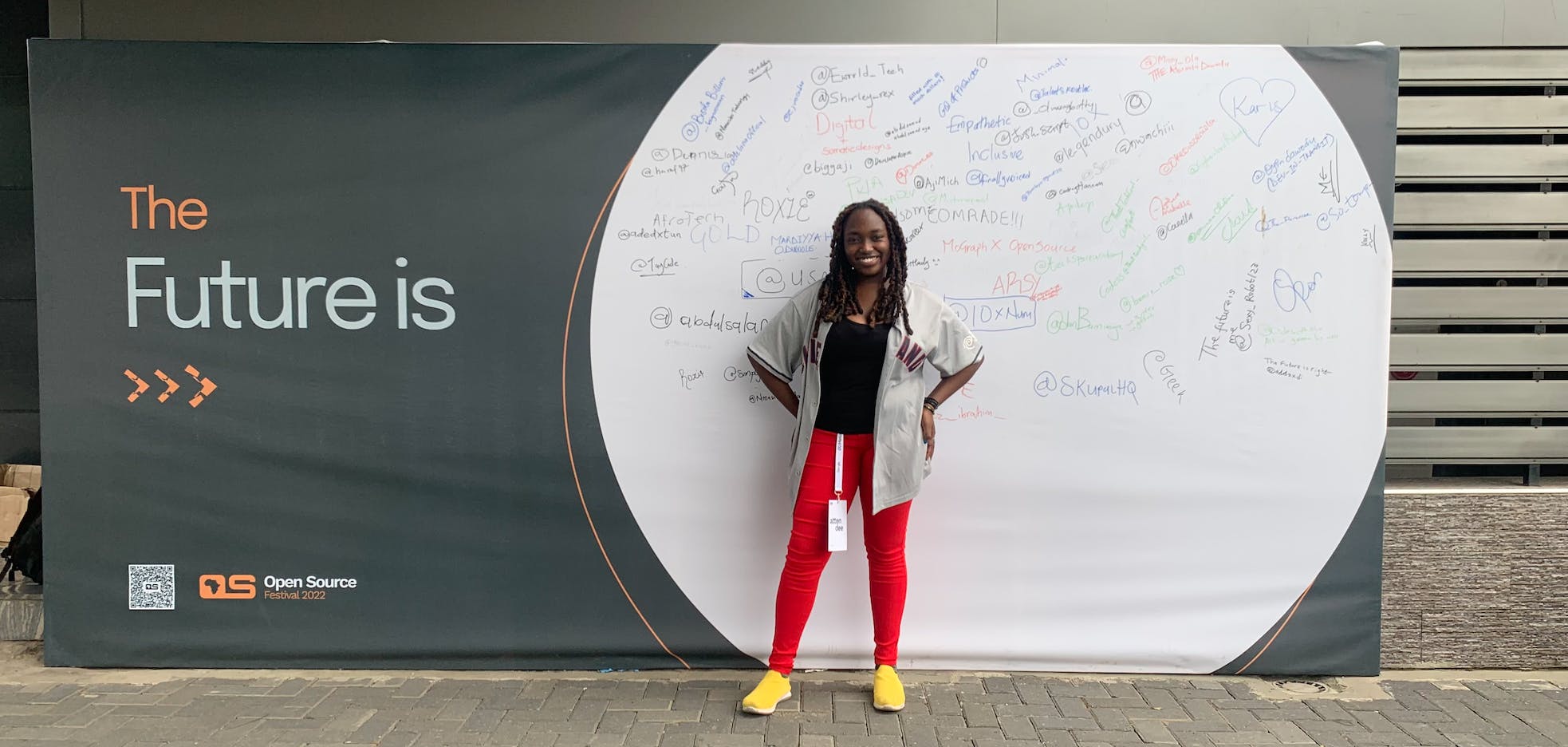
Conferences are about interacting with others learning, networking, generally having fun, and enjoying meals with each other. OSCAFest is one of those conferences that leaves a mark in your life and it shows through your work. You can ask Dominion what he achieved based on the previous one and you'd understand what I mean better.
The Open Source Festival is special because it's a conference tailored for Africans by Africans to create more awareness of open source and encourage/increase open source contributions by Africans to the technology ecosystem that is the backbone of what we have to this day. The open-source community has different chapters all over Africa for this specific need as well. Maybe it's the novelty of it being the first conference I attended after the pandemic, but something about it was epic.
Open source is sort of a cake that is never-ending and non-decreasing where everyone gets a piece. Everyone is welcome, from technical writers, product managers, community managers, designers, and developers you name them. It's an open space where you get to pick what you want to contribute. As Prosper said it perfectly, whether you came for money and stayed for money, whether you came for passion and stayed for it, it's all okay, your reason does not matter but your contribution does. The field appreciates and thanks you for your service.
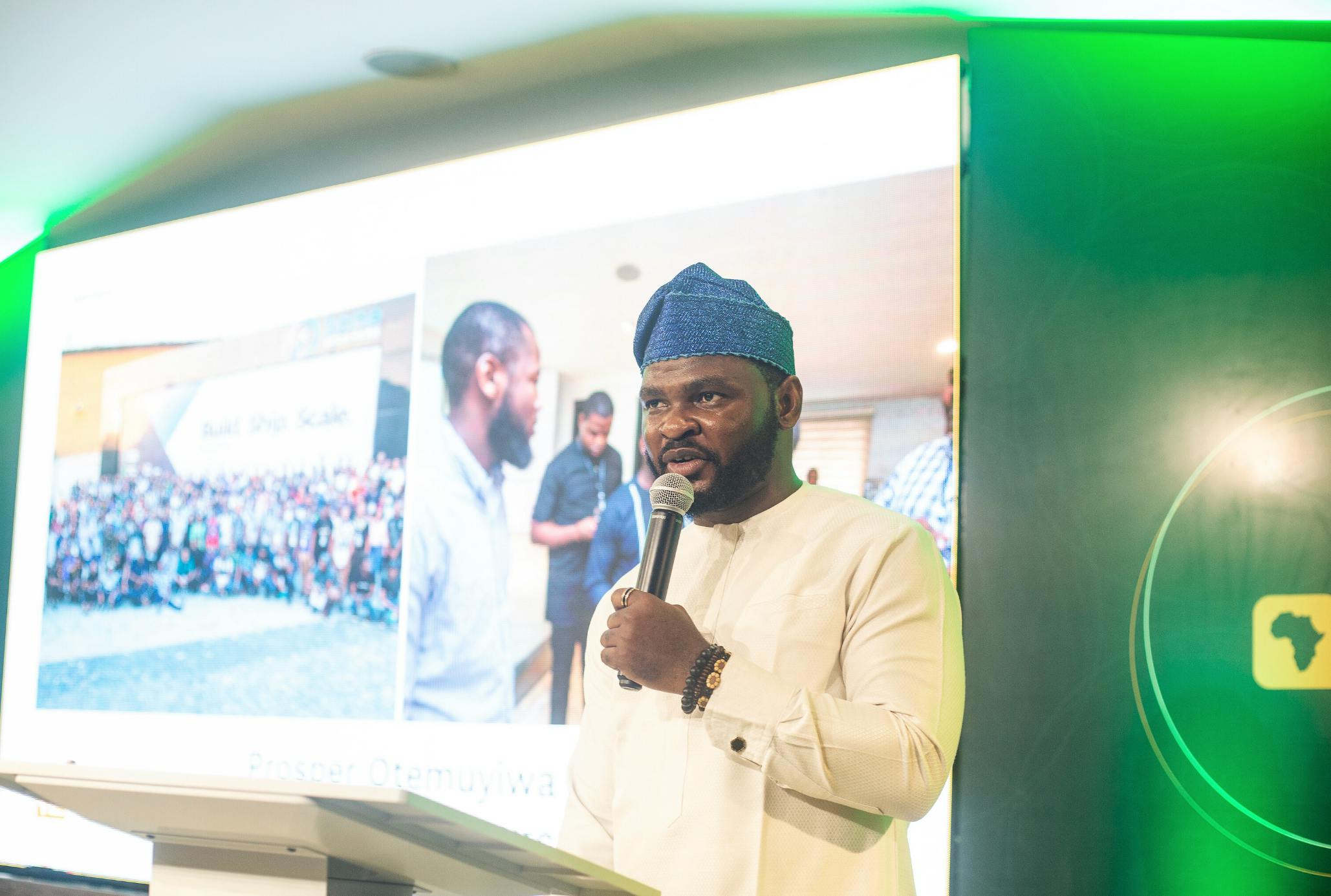
The sessions were all-inclusive from the speaker lineup to the arrangement of the schedule of activities. My schedule was quite busy because I had already nitpicked the must-attend sessions, people I looked forward to meeting, and all the questions I wanted to ask were all set. Yes, I knew what I wanted prior, It's always said that when an opportunity presents itself to you, you maximize it. I had already reached out to some of the people I had plenty of questions to ask so that I would not also overwhelm them. These people were kind enough to have conversations with me, some of them actually insisted that we should continue the conversations in person, which made me feel warm and fuzzy inside.
Some encouragement, shoot your shot, I want to lie to you and tell you that I was not nervous but God's honest truth I was scared that I would not get any feedback or negative feedback, then I remembered I have nothing to lose and shot my shot. It turned out pretty well because I had a 100% success rate. Plus I made new connections that I had not considered before. People want to genuinely help each other succeed only if you ask nicely and without feeling entitled to their time or response.
Highlights of some Sessions
Here's a quick recap of some of the interesting sessions I attended.
Primer on Blockchain and RSK by Gino Osahon
This session took me from zero knowledge of blockchain to understanding the different terms used and what they mean. In addition to terms, I also got to understand RSK(Rootstock) and how it adds value to the network and serves as the most secure contract platform in the world.
Open Source Paths In Learning Mixed Reality Development By Tayo Madein
I always wondered how to create mixed reality applications and turns out Tayo took us through the documentation on Babylon JS, what you need to know, the foundational components and building blocks for the common spatial interactions and user interface. Something new I learned is that you could use the 2D version of HoloLens to style mixed reality toolkit controls in Figma for user interface layouts and storyboarding.
Sourcegraph: A Must-Have Developer Tool For Open Source By Michael Bali
Sourcegraph allows you to search and explore your organization's code on the web with integrations through indexing. The product is also open so if you want to get into the how and what. They also have a VS code plugin so you could search your codebase or other repositories from your IDE.
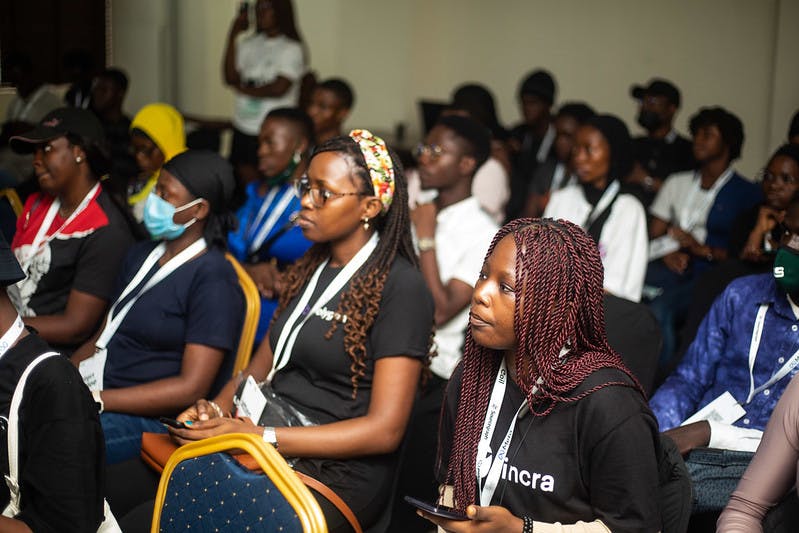
Docs save lives: How To Create Useful Documentation For Your Users Using Digital Psychology Principles By Linda Ikechukwu
We went through what good and bad documentation look like and the reasons why the user is the main actor in the documentation process. In addition, I learned about the psychological frameworks that influence how people consume information online and how to use this information to cater to the needs of the user using documentation.
Documentation as a Service: How We're Changing The Game At Xata By Tejas Kumar
To make good developer experience documentation needs to be a priority. This was an exciting talk about how Xata keeps documentation fast, up to date, and impactful. For instance, their documentation is generated from code and based on user feedback. It should be noted that when creating documentation you should adopt a service mindset and reduce human error.
Leveraging Tech: Building On Existing Skills To Achieve A Career In Tech By Udokaku Ugochukwu
We went through why people join tech but don’t land a job, utilizing the skills we have to network in the industry, and how to approach the job-seeking and application process. Not all applications may be successful as a result, we went through how to manage the rejection and remain focused.
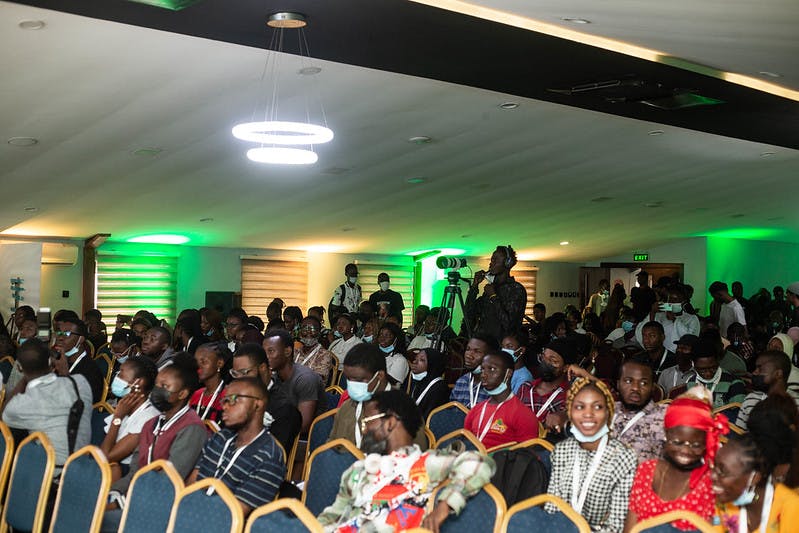
Breaking Into Product Management With Open Source By Shebuel Inyang
We learned about gaining experience as an entry-level product manager by using an unconventional route. This is through leveraging open-source products and projects. In order to avoid the trap of applying product management skills to an open-source project and instead express them as questions.
How To Indulge Your Need For Technical Writing As A Developer By Idris Olubisi
This talk was an introduction to technical writing and how to be consistent as a writer, be open to learning new things and take notes.
My OSCA Story By Dominion Ero
This was a personal story of how volunteering for OSCAFEST20 changed his life. The lessons, network, and friendships from the conference supercharged his career. The aim was to motivate people to not just attend but seek and develop meaningful connections during the conference.
Opening Doors With Open Source By Anjana Vakil
We got to learn about how Anjana got into tech from her transition from an English teacher to a developer advocate at Hasura. She also highlighted how you could not only use but contribute to open-source software at work. An emphasis on the role of mentorship as a community asset in both open source and companies was made.
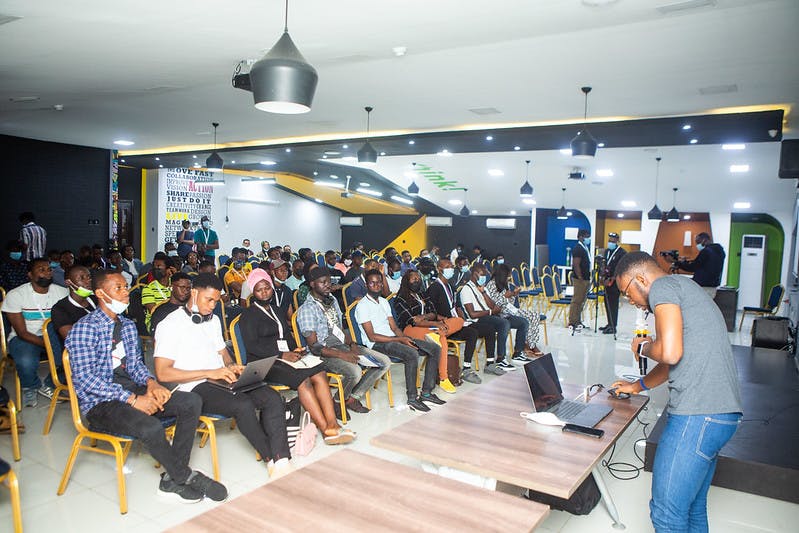
The Future Of Cloud-Native By Chris Aniszczyk
Cloud-native involves building and running applications to take advantage of the distributed computing provided by the cloud delivery model. The talk highlighted the history and future of cloud-native from virtualization to containerization and the likelihood of shifting to Wasmcloud, a distributed platform for writing portable business logic that can run anywhere from the edge of the cloud. Besides this, I also got an outline of how to learn cloud-native by learning the following:
- The basics of Git, Linux, and, open-source
- Containers and Docker
- Prometheus
- Kubernetes
The Golden Ticket: Becoming A Superstar & Impactful Open Source Software Contributor By Prosper Otemuyiwa
Open-source contributions are needed now more than ever because software is largely dependent on open source and maintainers need all the help they can get. This talk also highlighted ways you could leverage to contribute to open source:
- Finding & fixing vulnerabilities in the software you use,
- Boost code health by integrating tools that keep bundle size in check,
- Be faster at code onboarding by contributing to making demos and documentation
- Code reuse by contributing to already existing libraries.
The focus should be on making contributions to create an impact and being a superstar will come.
Sustain Africa
The Sustain event was more of round table conversations and discussions around the sustainability of people and resources on how free and open-source software is developed and maintained. This year it was held at TalentQL. Between me and you, the office was really pretty :).
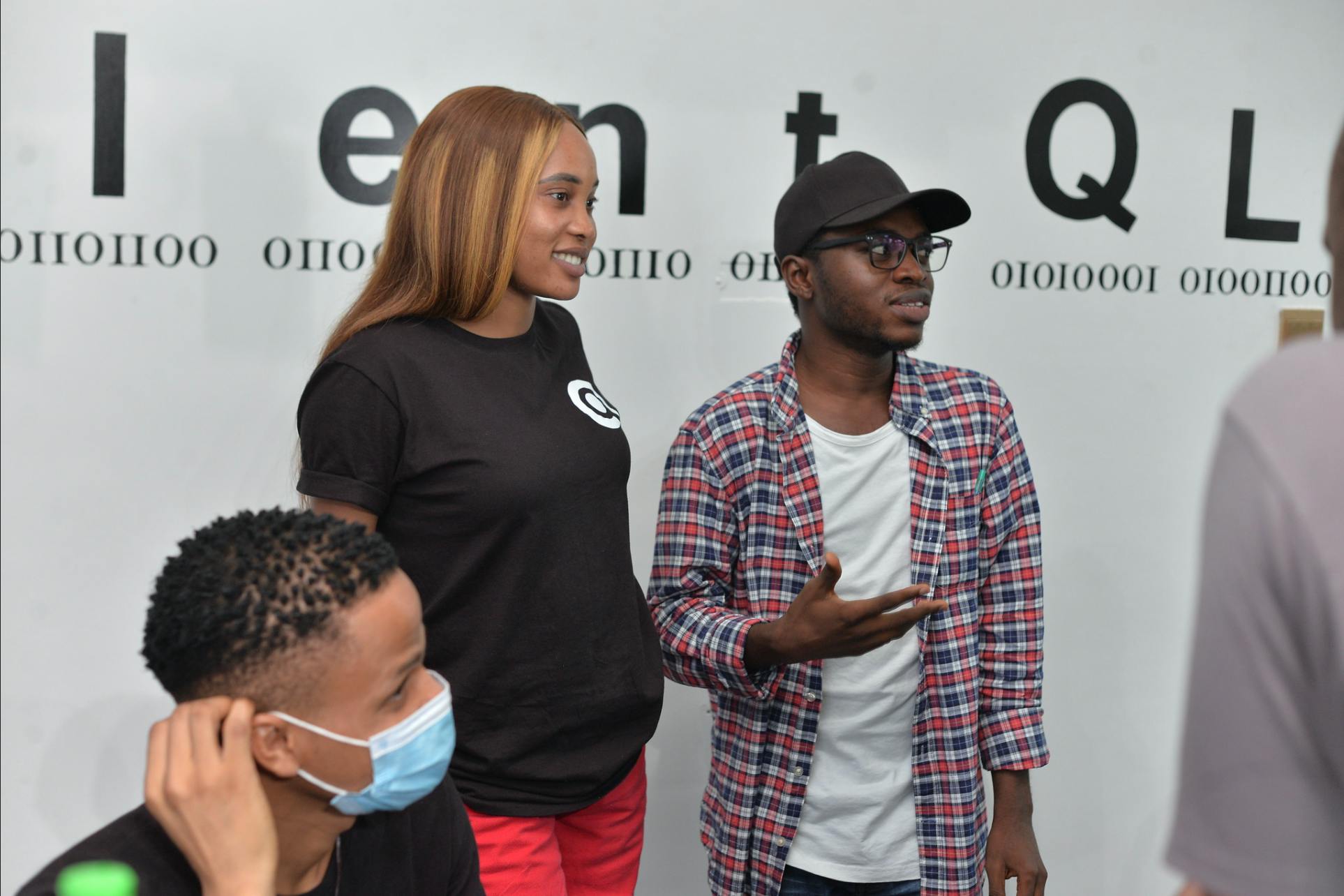
Moving on to the discussions the highlighted topics were:
- Open-source documentation
- Open-source design
- Open-source data science
- Open source marketing and funding
- Open-source programs and specialized projects
- Burn out and mental health
You can read more about Sustain here. I also got to interact with the Postman, Github, Paystack, Fincra, atsign, Github, and Polygon sponsors booths. I may have patronized stickers for my people from them.
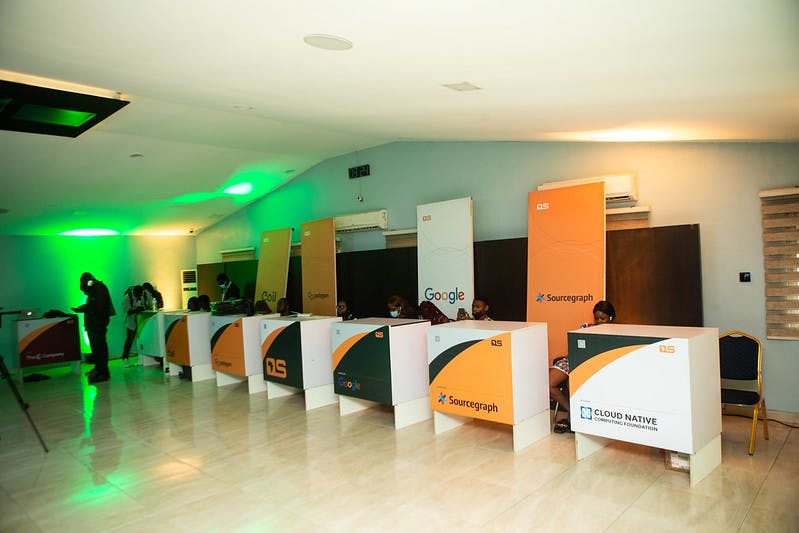
I must mention that meeting and interacting with other OSCA chapter leads across from Africa for the first time in person was exciting.
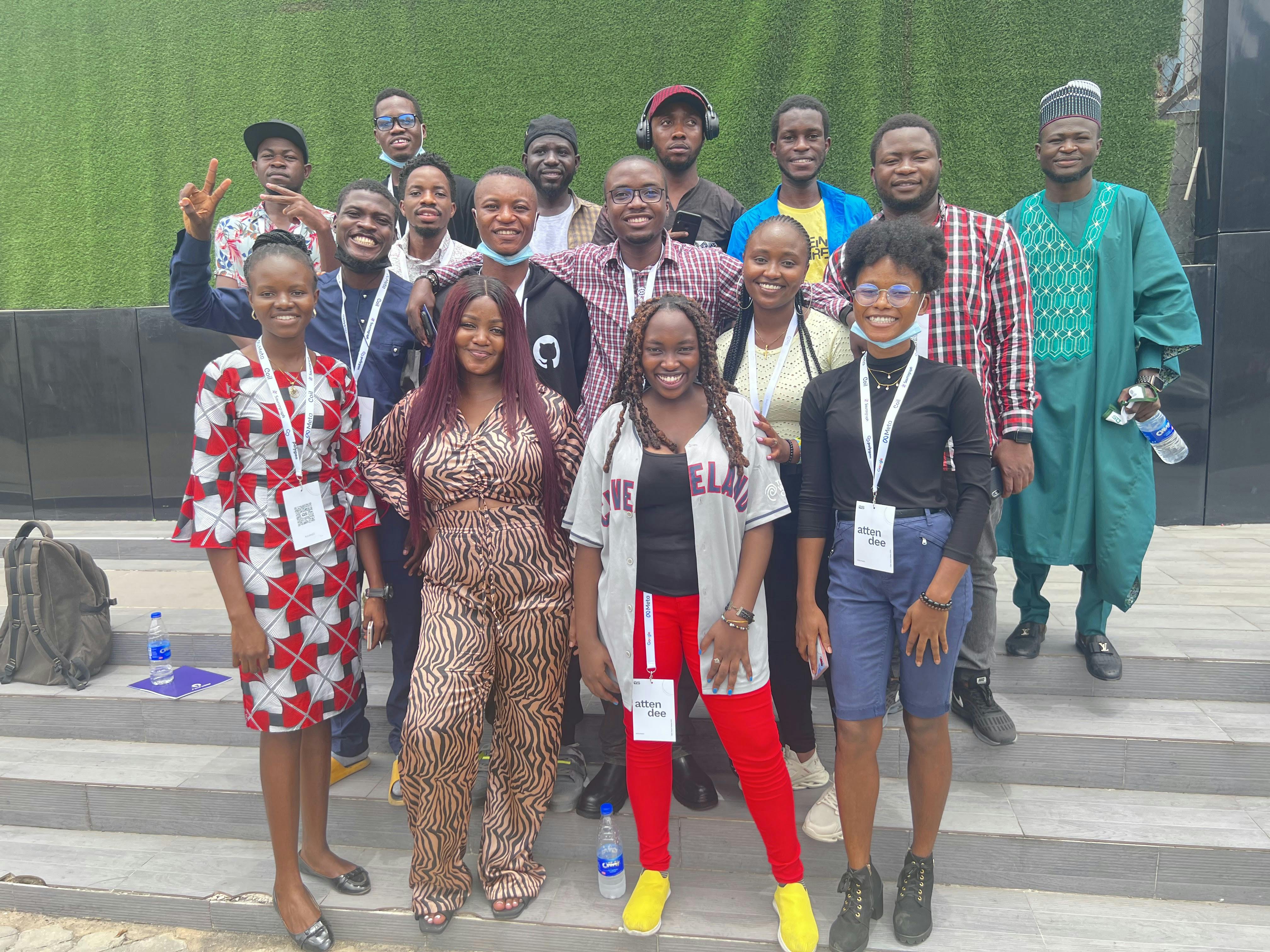
Conclusion
OSCAFest was worth attending. If you are planning to attend OSCAFest next year remember it's not all about the sessions, it's also about the interactions you will have, the people you will meet, and the things you learn. You can find the slides of all presentations here and recordings of the sessions here.
Thanks for reading!
